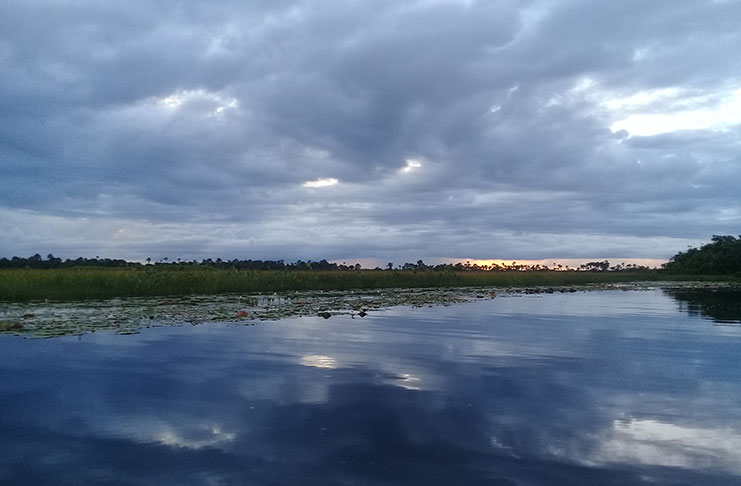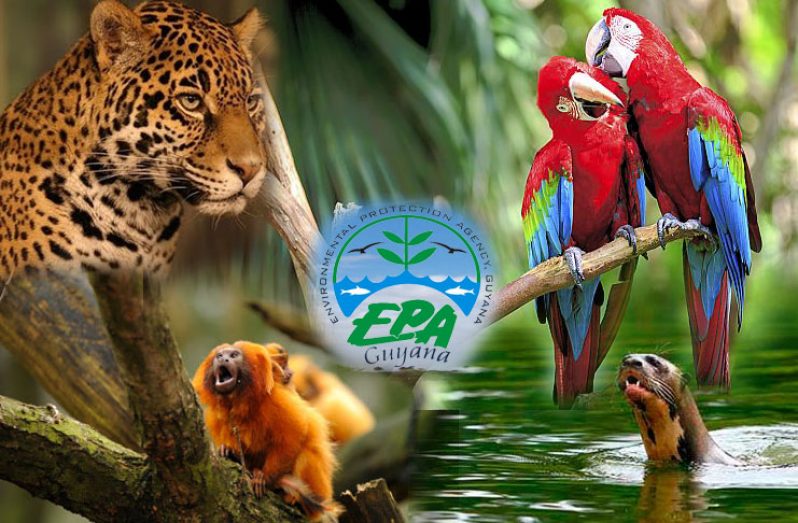LAST week we highlighted the vast opportunities for ecotourism in Guyana. Guyanese can boast of a country rich in natural resources, pristine local wonders eager to be discovered and enjoyed. Nevertheless, unequivocal pressures of climatic variability and development continue to present threats to natural ecosystems around the world.
As Guyana continues to celebrate Tourism Awareness throughout the month of November, highlighting ‘sustainable tourism as a tool for development’ we must keep in mind that nature-based tourism avenues too are under threat from climate change. This year’s focus underpins the need to thrust along a green trajectory if we are to live in a climate resilient future.
The impacts of climate change such as changes in rainfall patterns and rising sea levels, threatens susceptible dryland ecosystems such as the Rupununi Savannahs and the low-lying coastal plains, reducing productivity and stability. This, coupled with the utilisation of resources like tropical forests to combat poverty and hunger of people, summons the need for supportive green policies and plans to keep nature in balance with man.
Hard statistical evidence points to the fact that various aspects of our climate system are undergoing immense change. There is no doubt that the earth’s climate is warming up. Physical changes including melting permafrost and hydrological shifts and changes in biological systems, such as shifts in the range of terrestrial species and abundance of plankton and fish are a few striking observations.
Anthropogenic emissions of greenhouse gases (GHGs), now at levels not observed over the past 650, 000 years, according to the Intergovernmental Panel on Climate Change, are driving at a very fast rate, inherent features of variability of the climate. The major GHGs like carbon dioxide, methane, and nitrous oxide function normally through the greenhouse effect to maintain average global temperature. However, the burning of fossil fuels, agriculture and land use change continue to increase these gases beyond natural levels. According to the Office of Climate Change, Guyana has experienced its worst extreme weather events within the past two decades, evidenced by flooding and drought conditions and a notable increase in the difference between daytime and nighttime temperatures by as much as 0.8OC.

Guyana’s State of the Environment Report 2016 highlights that Eco-tourism profits are directly correlated with the health of the ecosystem, hence, degraded ecosystems are less profitable for tourism. Well-managed eco-tourism can have the joint benefits of enhancing livelihoods, protecting habitat and biodiversity and raising environmental awareness. Poorly managed eco-tourism can lead to ecosystem degradation. For example, the development of new infrastructure, waste disposal, resource use and depletion, water pollution and tourism activities may negatively impact the environment.
Dominica, known for marketing itself as ‘the nature isle of the Caribbean’ was recently devastated and is still recovering after being hit by hurricane Maria. CNN reported that this year some islands including Dominica, Puerto Rico and St. Martin may not see their vital economic livelihood due to hurricanes. Even a one per cent drop in visitors could reflect millions of losses for the region. Tourism itself in Dominica added some 34% to its GDP in 2016. Though the tourism sector is making strides to recover, people are still grappling with day-to-day survival.
Tourism is closely tied to the community and cannot survive without it. It thus behooves us, to cultivate attitudes that will contribute to sustainable societies that can adapt to the impacts of climate change on ecosystems, water resources, food security, settlements and society, and human health. Our tourism sector depends on it. Perhaps the best theme was chosen this year because sustainable tourism will be a necessary tool for development.
You can share your ideas and questions by sending letters to: “Our Earth, Our Environment”, C/O ECEA Programme, Environmental Protection Agency, Ganges Street, Sophia, GEORGETOWN, or email us at: eit.epaguyana@gmail.com or follow us on Facebook and Instagram.





.jpg)








